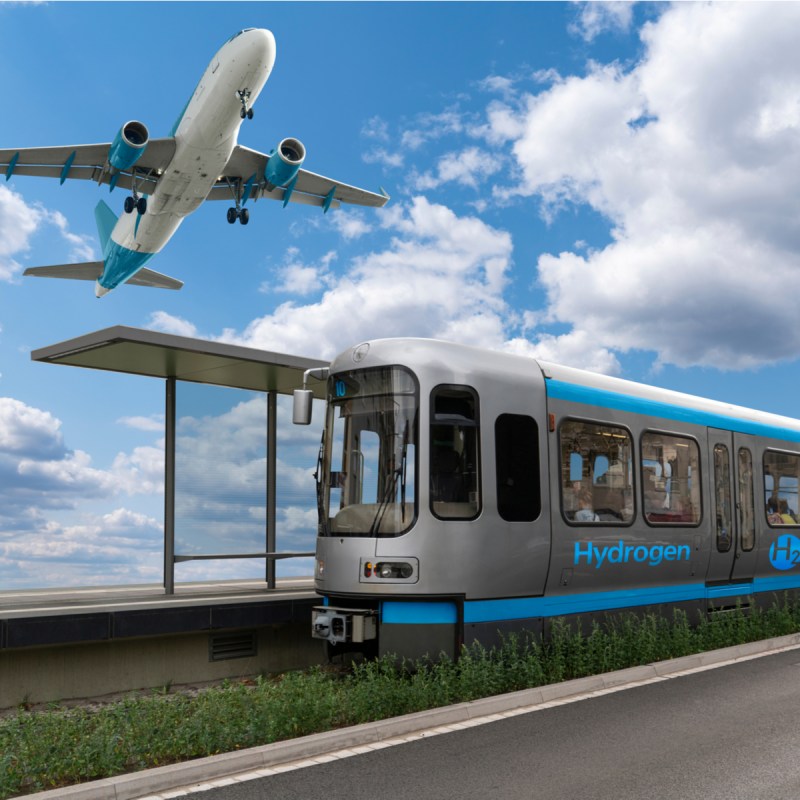
In a move intended to help reduce CO2 emissions, environmental group Greenpeace has asked European governments to ban short-haul air flights when the same trip may be completed by train in less than 6 hours. The group is also pushing governments to make rail travel more accessible.
“Instead of continuing to back major polluters like airlines and airports, public money should be going toward more climate-friendly and efficient alternatives like trains,” Greenpeace EU climate and energy campaigner Lorelei Limousin said in a statement. “European policy-makers and countries should ban short-haul flights wherever a viable alternative already exists and invest in rail to create a European transport system that’s good for the planet while also being affordable and accessible to all.”
A Measurable Outcome
In recent years, aviation has become the fastest-growing source of greenhouse gas emissions in Europe. Indeed, greenhouse gas emissions from air travel increased 29 percent from 2009 to 2019 in Europe, Greenpeace explains. Specifically, flights under 1,500 kilometers (around 932 miles) are responsible for 25 percent of European aviation’s CO2 emissions, the group continues.
Consider, for example, the Madrid to Barcelona flight in Spain, which is one of the busiest flights in Europe. Greenpeace’s research found that flying this route emits up to nine times more CO2 emission than the same trip by rail. And yet, the trip by train can be completed faster than the trip by plane.
“Greenpeace calculated that just banning the EU’s busiest short-haul flights and shifting to rail wherever a train connection under 6 hours already exists would save 3.5 million tons of CO2e per year,” the group explains. “If countries add new daytime and night train connections and services, better wagons and tracks, improve accessibility for all, and make tickets cheaper, Europe could replace almost all of the top 250 short-haul flights and save some 23.4 million tons of CO2e per year — as much as the annual CO2 emissions of Croatia.”
A Viable Alternative
Greenpeace’s demand — which comes just ahead of the U.N. climate change summit in Glasgow, Scotland, this weekend — is centered around research conducted by OBC Transeuropa (OBCT), which was commissioned by Greenpeace EU. The research analyzed the 150 busiest short-haul flights in the EU as well as the 250 busiest short-haul flights in Europe — including the EU, UK, Norway, and Switzerland.
Tellingly, the research found that just over one-third of the 150 busiest short-haul flights in the EU, as well as the 250 busiest short-haul flights in Europe — including the EU, UK, Norway, and Switzerland — have train alternatives that may be completed in less than 6 hours.
The flip side of the coin is that, although rail service has improved for international routes such as Brussels to Vienna, Stockholm to Berlin, and Amsterdam to Munich, traveling across borders by train in Europe has become extremely difficult, Greenpeace explains.
Compounding the situation, night trains in Spain, Portugal, France, and Italy have been canceled, Greenpeace continues. As a result, OBCT’s research found that only 27 percent of the 150 busiest EU flights have direct night train alternatives.
Growing Support
What is perhaps most interesting is that there is growing public support for travel by train. For instance, a survey conducted by the European Investment Bank found that 62 percent of Europeans support a ban on short-haul flights.
There also is considerable public support for travel by night trains — if the cost is reasonable. A study commissioned by Europe on Rail found that 63 percent of the surveyed people in Germany, 72 percent of the people in France, 73 percent of the people in Poland, 80 percent of the people in Spain, and 65 percent of the people in The Netherlands want to take more night trains.
For more about traveling by train in Europe, be sure to read all of our European Rail coverage, including:
